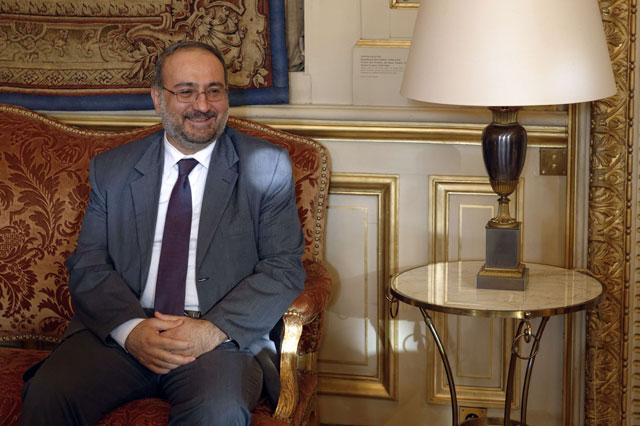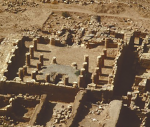You are here
Syrian opposition coalition dissolves interim government
By Reuters - Jul 22,2014 - Last updated at Jul 22,2014

BEIRUT — The Western-backed National Coalition of Syrian opposition members said on Tuesday it had voted to force out its “interim government” and form a new one within a month.
Attempts to form a viable government-in-exile for Syria’s opposition have been hamstrung by rivalries between its backers and among its members as well as by its inability to establish itself inside Syria.
The National Coalition is designated as the main body representing the opposition by the United States and other major powers but it has little influence over rebels fighting to overthrow President Bashar Assad.
The group said in a statement on Tuesday it was dissolving its interim Cabinet to “create new ground for work on the basis of moving the government into the interior as soon as possible, and employing Syrian revolutionary capabilities”.
Ahmed Ramadan, an opposition politician who was against the decision, said the move was rooted in a dispute between interim Prime Minister Ahmad Tumeh and the coalition’s former president, Ahmad Jarba, over Jarba’s attempts to form a military government.
“Things are heading toward a crisis that will lead to weakening the opposition’s position even more,” he said, adding it would be “almost impossible” for an opposition government to work inside Syria, for security reasons.
“There is no clear strategy,” he said.
Critics have accused Tumeh of being ineffective after he suffered a political defeat this month at a coalition general assembly meeting this month when he had to reverse his decision to fire the military wing’s chief of staff.
The coalition statement said Tumeh and other ministers would continue as caretakers until the new government was formed. Nominations would be open for two weeks and a new government formed within 30 days.
The dissolution of the government comes two weeks after the group elected Hadi Al Bahra, a US-trained industrial engineer, to replace Jarba after he served his maximum two six-month terms.
Both Bahra and Jarba have close ties to Saudi Arabia, one of the main backers of the rebels trying to overthrow Syrian President Bashar Assad.
Bahra had also been chief negotiator at US and Russian-sponsored peace talks in Switzerland, which stalled after two rounds in January and February.
Related Articles
Syria’s Western-backed opposition, the National Coalition, elected Hadi Al Bahra, chief negotiator at the Geneva peace talks, as its new president on Wednesday after a three-day meeting in Istanbul.
The Western-backed Syrian opposition group will begin a three-day meeting in Istanbul later Sunday to elect a new president and discuss the offensive by Islamic militants straddling Iraq and Syria, an official with the group said.
The Western-backed group that sees itself as a government-in-exile opposed to President Bashar Assad has re-elected its leader, a decision that reasserted the influence of Qatar and the Muslim Brotherhood over the beleaguered body.



















